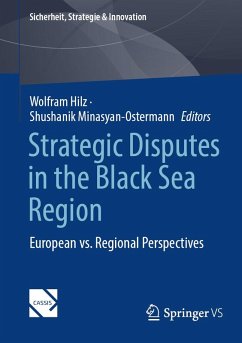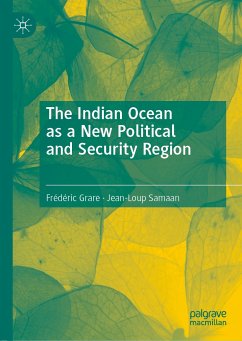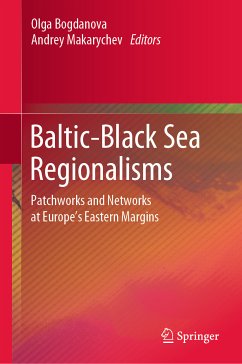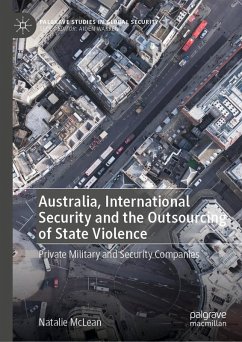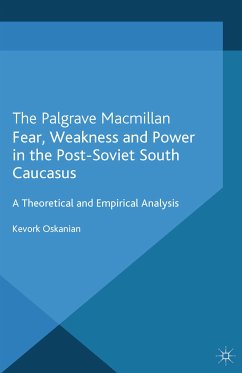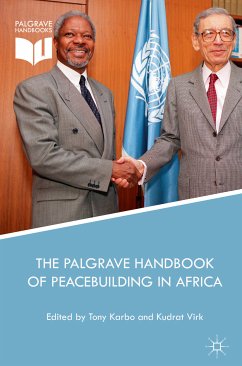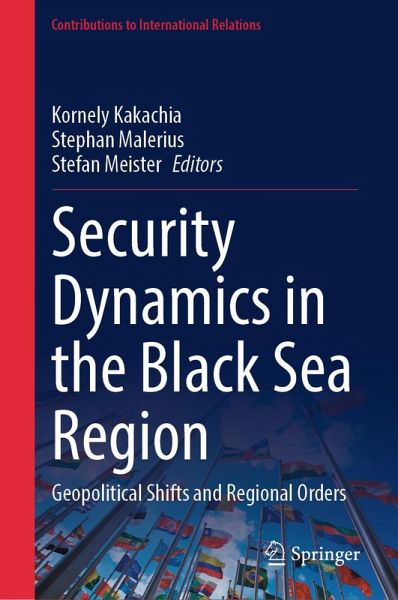
Security Dynamics in the Black Sea Region (eBook, PDF)
Geopolitical Shifts and Regional Orders
Redaktion: Kakachia, Kornely; Meister, Stefan; Malerius, Stephan
Versandkostenfrei!
Sofort per Download lieferbar
112,95 €
inkl. MwSt.
Weitere Ausgaben:

PAYBACK Punkte
56 °P sammeln!
This book examines the geopolitical shifts triggered by Russia's military aggression against Ukraine from February 2022 onwards. This conflict has catalyzed unprecedented transformations in the Black Sea region's security landscape, reshaping the foundations of international relations. Presenting various case studies on key players such Russia, Ukraine, the USA, Turkey, the European Union, and NATO, the book presents a comprehensive analysis of the multifaceted impacts stemming from the conflict, focusing on three critical dimensions: military, economic, and human security. The contributions e...
This book examines the geopolitical shifts triggered by Russia's military aggression against Ukraine from February 2022 onwards. This conflict has catalyzed unprecedented transformations in the Black Sea region's security landscape, reshaping the foundations of international relations. Presenting various case studies on key players such Russia, Ukraine, the USA, Turkey, the European Union, and NATO, the book presents a comprehensive analysis of the multifaceted impacts stemming from the conflict, focusing on three critical dimensions: military, economic, and human security. The contributions examine whether and how the conflict has not only magnified security challenges but also spurred resistance by Ukrainian forces and society. It also examines the impact of comprehensive economic sanctions and Western military and financial assistance to Ukraine on Russia's military capabilities and regional balance of power.
The book sheds new light on the intricate interplay between state actors, multilateral institutions, and emerging regional orders. By dissecting the impact on governance models, rule of law, and human security, the book illuminates the far-reaching consequences of the conflict beyond military dynamics. With a keen focus on the emergent European security order, the book underscores the need for novel strategies to address the evolving security complexities in the Black Sea region. This book is a must-read for those seeking insights into the changing face of European security and the emergence of a new geopolitical order.
The book sheds new light on the intricate interplay between state actors, multilateral institutions, and emerging regional orders. By dissecting the impact on governance models, rule of law, and human security, the book illuminates the far-reaching consequences of the conflict beyond military dynamics. With a keen focus on the emergent European security order, the book underscores the need for novel strategies to address the evolving security complexities in the Black Sea region. This book is a must-read for those seeking insights into the changing face of European security and the emergence of a new geopolitical order.
Dieser Download kann aus rechtlichen Gründen nur mit Rechnungsadresse in A, B, BG, CY, CZ, D, DK, EW, E, FIN, F, GR, HR, H, IRL, I, LT, L, LR, M, NL, PL, P, R, S, SLO, SK ausgeliefert werden.




